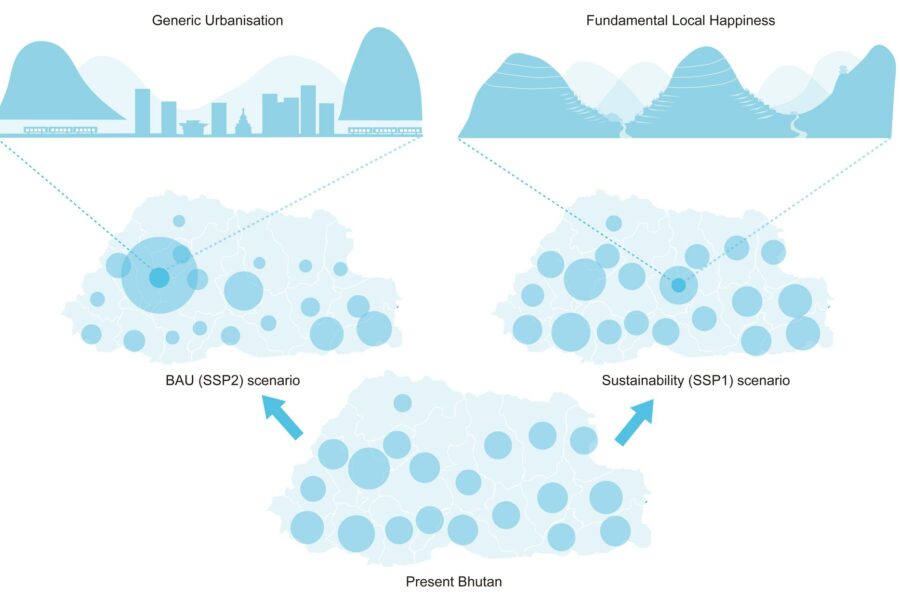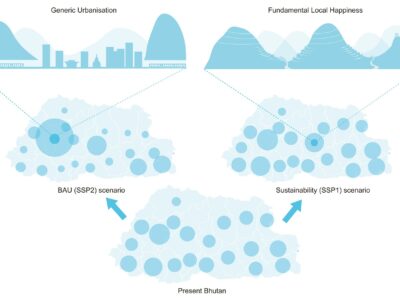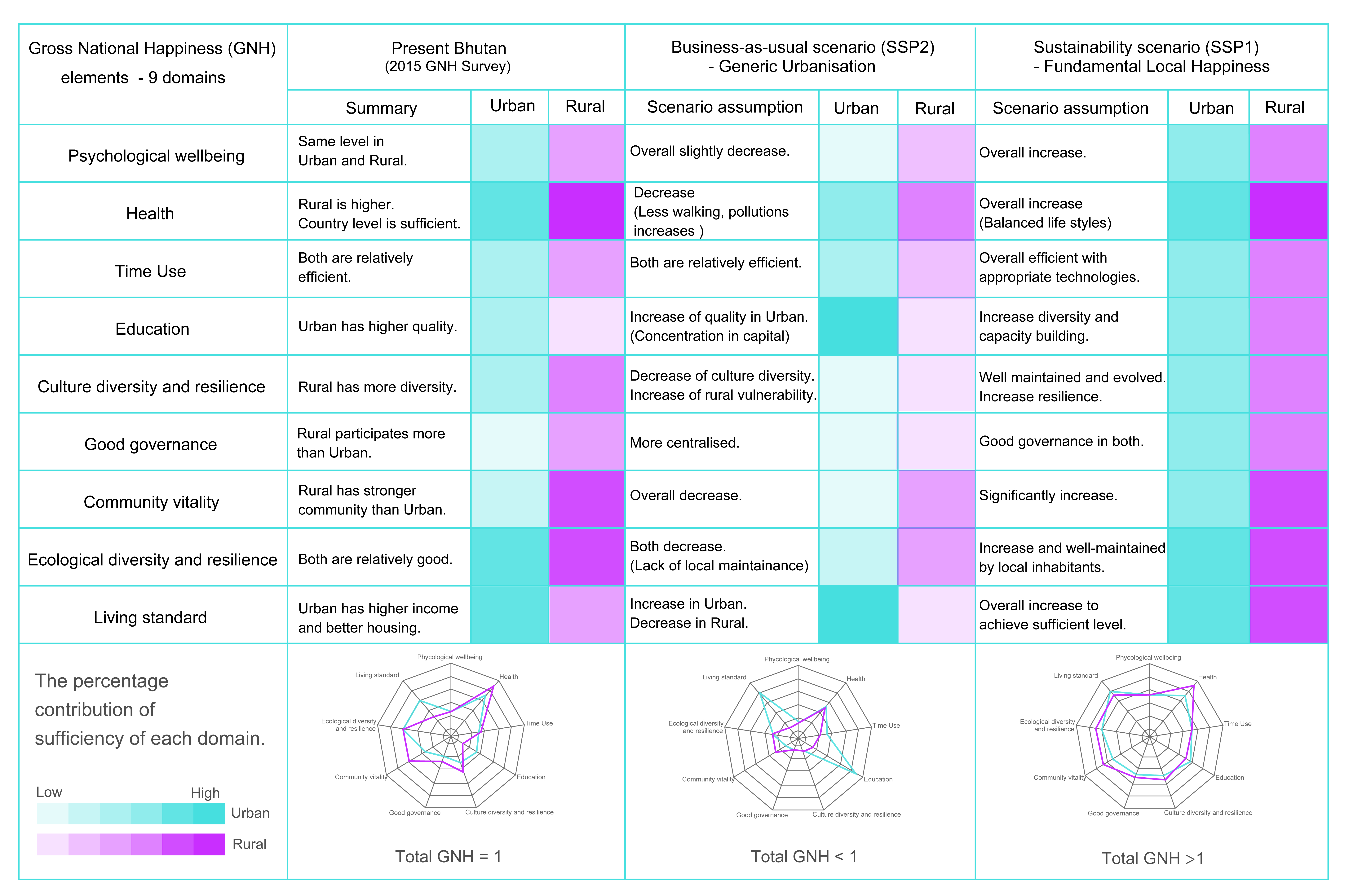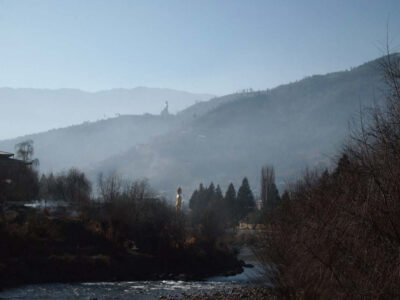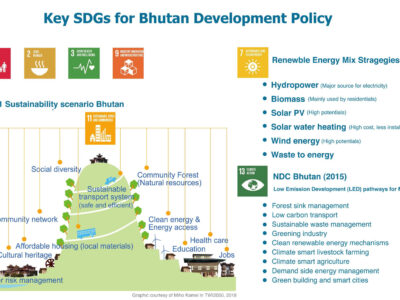This study uses the framing of the Shared Socioeconomic Pathways (SSPs) from global climate change literature to develop a vision for a locally appropriate SSP for a sustainable Bhutan. Most of the settlements in Bhutan are located within steep-walled river valleys. These areas are vulnerable to climate impacts, and need well-planned strategies for both climate adaptation and mitigation. The proposed sustainable pathway for Bhutan (SSP1) outlines a future in which all basic social services are provided locally with more broadly balanced urbanization strategies, and emphasizes environmental values and ecosystem services as well as community well-being. SSP1 aims to harmonize all Bhutan’s Gross National Happiness domains.
Expected impact: these socioeconomic narratives are expected to be used for stakeholder engagements and policy discussions in multi-stakeholder governance processes with integrations of key sectoral science-based investigations
The scenarios were made in: 2019
The scenarios look out to:
